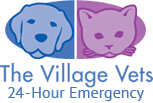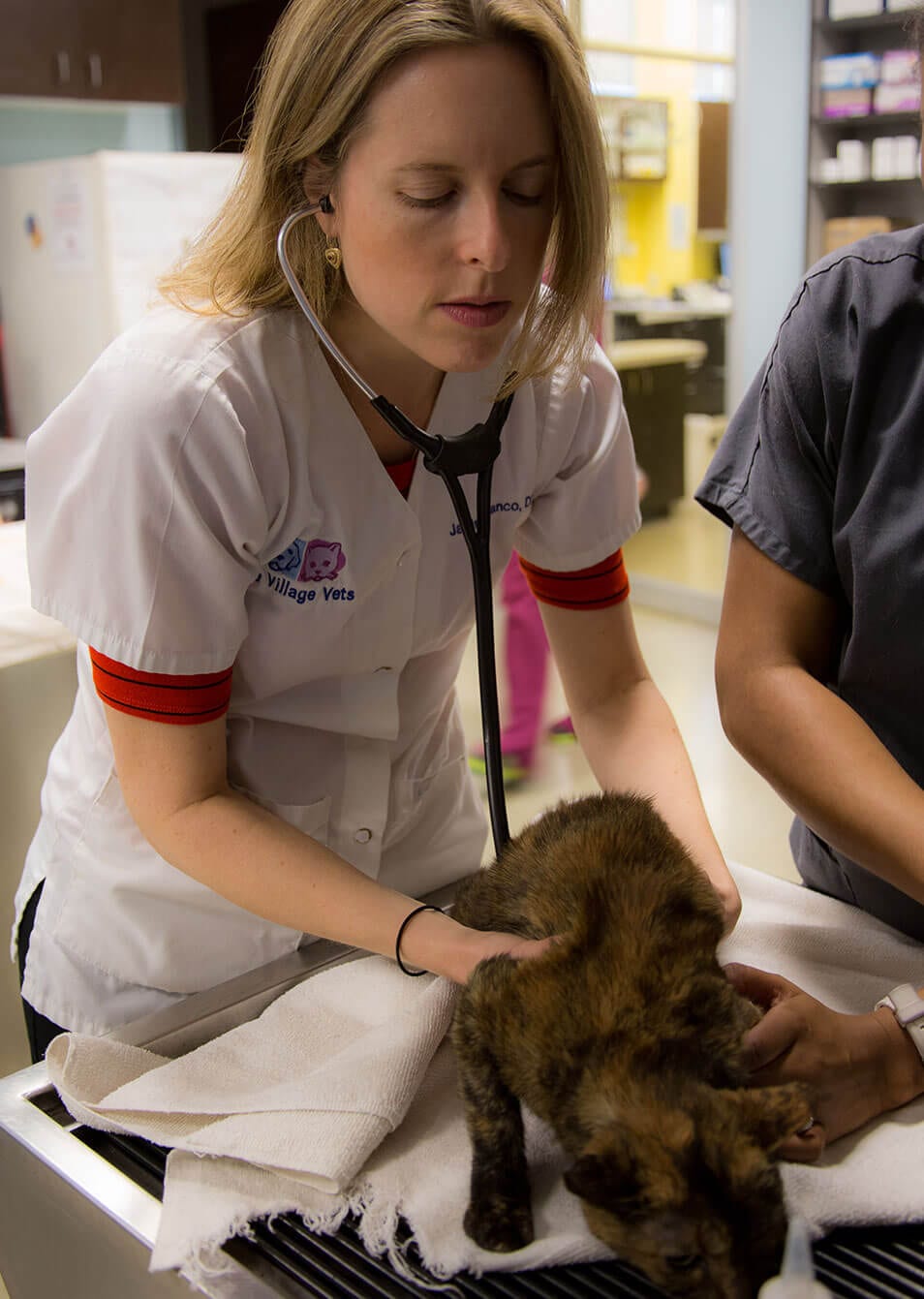Signs Your Pet Might have been Poisoned
If you didn’t see your pet eat anything suspicious, you might not immediately assume that something they ate could be causing their condition. The following signs could indicate that your pet ingested a poison:
- Vomiting
- Diarrhea
- Lack of appetite
- Hyper-salivating
- Vomiting/coughing up blood
- Lethargy (reluctant to get up, sleeping often)
- Collapse
- Drinking and/or urinating excessively
- Acting dull, disoriented
- Stool is black and tarry
How to Handle Poisoning in Cats and Dogs
If your pet ingested a poisonous substance, act promptly but remain calm. Here’s what to do:
- Make sure your pet is still breathing and behaving normally
- If the poisonous substance is within reach of other pets or children, remove your pet from the area and remove the substance quickly
- Call us immediately, or contact the Pet Poison Helpline at (855) 764-7661 for more information
- Collect a sample of the poisonous substance to bring to the vet (if possible)
- Do not attempt to treat your pet yourself; this could make their condition worse
- Avoid trying to induce vomiting unless directed by your vet or a Pet Poison Helpline expert
If you’re not sure whether your pet was poisoned and need help handling the situation, you can reach out to us, or contact the Pet Poison Helpline at (855) 764-7661*.
*The Pet Poison Helpline charges a $65 incident fee, which also includes any and all follow-up calls.
What to Expect When You Call Us or the Pet Poison Helpline
When you call our emergency hospital or the Pet Poison Helpline, there are a few pieces of information we (or they) will want to know, including:
- What substance your pet ingested, and how much
- The strength of the substance (if it was a chemical or medication)
- How much time has passed since your pet ingested the substance
- Your pet’s age, breed, and weight

Some of the Most Common Household Poisons and Toxins
Our homes are full of potential poison hazards for our pets. See the list below and make sure that if your home contains these items, that they’re securely stored out of your pet’s reach!
- Sweets, particularly chocolate, baked treats, and candies
- Cleaning supplies
- Paint
- Glue
- Lawn and garden fertilizers, fungicides and herbicides
- Insecticides
- Rat poison
- Bouquets, and indoor and outdoor plants (lilies are very toxic to cats, and azaleas and daffodils can be toxic as well)
- Garlic, onions, grapes/raisins, and xylitol (artificial sweetener)
- Human prescription and OTC medications, including pain relievers and cold medicines
Help for your pet is just a call away. Get in touch with The Village Vets 24-Hour Emergency at (404) 371-9774.
Find out what to expect when you arrive at our hospital by clicking below.


